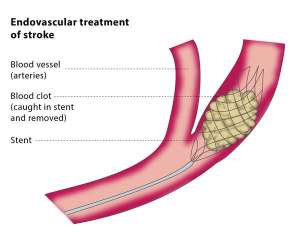
As a doctor who is genuinely concerned about my patients' health and wellbeing, I cannot stress the significance of public awareness campaigns and educational programs that highlight stroke identification and prevention. Stroke, sometimes called a "brain attack," is a major global cause of disability and death, yet many people are still ignorant of the risk factors and warning indicators. We may save unnecessary pain and save lives by spreading awareness and encouraging knowledge.
Campaigns to raise awareness of stroke are an essential tool for enabling people to identify the warning symptoms of stroke and respond quickly. Too often, stroke symptoms are misdiagnosed as other illnesses or are disregarded, costing valuable time. But by making people aware of the acronym FAST—Face drooping, Arm weakness, Speech difficulties, Time to phone emergency services—we can enable people to take immediate action if they or a loved one suffers stroke symptoms. In the critical field of stroke care, every moment matters. By moving quickly, we can optimize the efficacy of life-saving measures like mechanical thrombectomy and clot-busting drugs.
Awareness campaigns are essential for teaching the public about the risk factors and necessity of stroke prevention, in addition to helping them recognize the symptoms of a stroke. Many strokes may be avoided by making lifestyle changes such eating a balanced diet, exercising frequently, giving up smoking, controlling diabetes and hypertension, and managing stress. Through educating people about these risk factors and motivating them to change their lifestyles, we can dramatically lower the prevalence of stroke and enhance public health in general.
In addition, programs to raise awareness of stroke can help debunk myths and misconceptions about the condition, especially in underprivileged areas where delays in seeking medical attention may be caused by linguistic and cultural hurdles. Through the dissemination of precise knowledge and culturally aware outreach, we can guarantee that everyone has access to the tools necessary for stroke prevention and management.
It is critical to understand that raising awareness of stroke is a continuous endeavor that calls for cooperation and involvement from a range of stakeholders, including citizens, community groups, legislators, and healthcare professionals. We can develop a culture of early detection and intervention for stroke that saves lives and lessens the impact of stroke on people, families, and society at large by cooperating to raise awareness and educate the public.
To sum up, stroke awareness programs are an effective weapon in the battle against stroke because they provide people with the information and tools they need to identify symptoms, lower risk factors, and take preventative action. Because I am a neurosurgeon and I am aware that stroke awareness and education programs have the power to significantly improve the lives of many people, I am dedicated to lobbying for their ongoing funding. Since every stroke that is prevented is one that is not fatal, let us unite and promote awareness about strokes.




 Voter registration: Two Togolese Nationals arrested in Buem for attempting to re...
Voter registration: Two Togolese Nationals arrested in Buem for attempting to re...
 DR Congo thwarts Kinshasa 'coup attempt': army
DR Congo thwarts Kinshasa 'coup attempt': army
 Media has made good progress in Ghana — Frema Opare
Media has made good progress in Ghana — Frema Opare
 E/R: We will demonstrate against our parliamentary candidate for disappearing af...
E/R: We will demonstrate against our parliamentary candidate for disappearing af...
 Kotokuom elders issue ultimatum to Kwaku Boah to stop defaming Atwima Agogohene ...
Kotokuom elders issue ultimatum to Kwaku Boah to stop defaming Atwima Agogohene ...
 W/R: Tragic premix explosion injures 16 in Ngyirasia
W/R: Tragic premix explosion injures 16 in Ngyirasia
 Election 2024: NDC pledges to scrap betting tax, targets 80% youth support
Election 2024: NDC pledges to scrap betting tax, targets 80% youth support
 Mahama was a one-term president because he was incompetent and brought untold ha...
Mahama was a one-term president because he was incompetent and brought untold ha...
 Blame IMF programme for Cedi's decline —Prof Bokpin
Blame IMF programme for Cedi's decline —Prof Bokpin
 Court denies Kasoa soldier killer bail
Court denies Kasoa soldier killer bail
